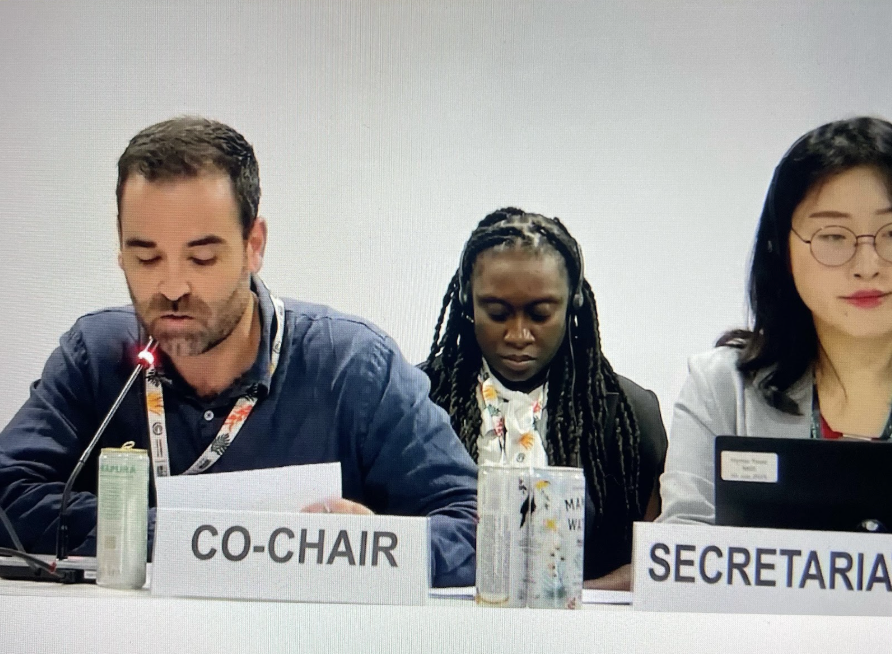Haiti’s Future Remains Uncertain Following the Expiration of Late President Jovenel Moise’s Presidential Term
Haitian government vehicle transferring the body of assassinated President Jovenel Moise (Wikimedia Commons).
Haiti remains without an official president since the assassination of former president Jovenel Moise, whose official term expired on February 7. Interim Prime Minister Ariel Henry assumed power quickly after President Moise’s death on July 7, 2021, but Henry’s term is not constitutionally tied to President Moise’s term. Moise’s assassination has thrown Haiti into a much deeper constitutional crisis where impunity, money, and political legitimacy sow division and insecurity. Moise’s failure to conduct parliamentary elections before his assassination left Haiti in a precarious political situation characterized by a lack of consensus among civil rights leaders and politicians in Haiti.
Henry affirmed he wants democratic institutions in Haiti to function normally and would transition power to elected officials. On February 4, he tweeted that transitional bodies, including a provisional electoral council, would be installed in the coming days. On February 7, the last official day of President Moise’s presidential term, thousands of Haitians avoided the streets in fear of further violence as abject poverty, natural disasters, and gang violence. More than 15,000 people have been displaced since June, 2021 from populous neighborhoods near the capital, homes and businesses have been decimated while armed gangs block critical roads connecting the southern peninsula to Port-au-Prince, the capital city where Moise was assassinated seven months ago. This increased violence comes as 4.4 million Haitians require food assistance, the national poverty rate stands at 59 percent, and the most recent earthquake, on August 14, 2021, left 2,000 Haitians dead.
The Core Group — a group of states in the Western Hemisphere, namely Germany, Brazil, Canada, Spain, the United States, and France — called on “all political, economic and civil society actors in the country [to] fully support authorities in their efforts to restore security.” However, the Core Group’s definition of security remains unclear within the context of failing governance institutions during what Magali Comenau Denis, a former Hatian minister of culture and communications, described as an “extra-constitutional situation.” The ongoing instability and social unrest, many civil society activists argue, render free and fair elections impossible for the time being.
Haiti has dealt with a long history of foreign intervention, especially from Western countries like the United States. After the assassination of Haitian President Jean Vilbrun Guillaume Sam in 1915, Haiti’s most recent presidential assassination prior to Moise’s assassination, the United States military occupied Haiti through 1934. Haitian human rights leaders today see the United States' obsession with securing elections and imposing order as futile and counterproductive. Leading human rights advocate, Pierre Esperance, calls on the Biden Administration to “work to create the conditions in which we, the Haitian people… can decide the future of our country, strengthen our democracy, and guarantee our basic human rights.” With crumbling state institutions, Esperance worries that sham outcomes may result in even more innocent deaths on the streets. Furthermore, the United States deported more than 12,000 Haitians during the COVID-19 pandemic, raising questions about the United States’ commitment to the safety and well-being of Haitian citizens amid such unprecedented turmoil.
The future remains uncertain in Haiti. Rival blocs, one led by Henry and the other by civil society activists, introduced accords that seek to guide Haiti through a political transition. Investigators continue to uncover details from the assasination plot in July. Details from the investigation revealed that Prime Minister Henry was likely directly connected to Moise’s assassination and its key organizer, a former Haitian anti-corruption official named Joseph Felix Badio. Prime Minister Henry’s September 11th Accord favors ratifying a new constitution and holding elections by the end of 2022. However, civil society leaders and other prominent politicians support the Montana Accord, an alternative to Henry’s plan, which proposes a two-year transition timeline that will allow Haiti to secure a safer voting environment.
Ultimately, a democratic future for Haiti requires a renewed commitment to the effective management and issuance of humanitarian relief, led by Haitian human rights advocates and civil society leaders who can prioritize responding to the absence of even the most basic human needs. Emmanuela Douyon, the Executive Director of POLICITÉ, a civil society organization in Haiti, briefed the United Nations Security Council in July on the ways in which the United Nations and the international community at large can support government efforts in areas of security and protection of civilians. She remains adamant that development assistance cannot be “crumbs of humanitarian aid that only acts as a Band-Aid.” Rather, aid must come in the form of adequate funding directed specifically to civil society organizations that operate locally.
Furthermore, Douyon noted that “through urgent, determined and concerted action, Haiti’s citizens can address the deep structural challenges, as well as the governance and development deficits, which feed their country’s instability, insecurity and ever-growing humanitarian needs.” Therefore, institutional reform and security, by way of elections and anti-corruption mechanisms, can only become possible if international actors work for domestic society and in solidarity with Haitian leaders, alleviating Haiti’s rampant poverty and inequality— bolstering islands of agreement in a polarized and increasingly violent political and social landscape without a president.











